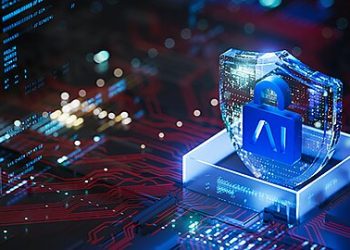A computer or laptop exemplifies a compelling investment, so it’s a good idea to know how to take care of it.
Maintaining legitimacy and care will ensure you get many years of good service. It is also useful to check the laptop from time to time to rule out any errors or problems that may occur during regular use.
Now in this digital world, computers are very crucial – education, business, research, and other functions. If you are neglecting your computer upkeep and maintenance, you may find yourself in trouble someday. The good news is, maintaining the health of your computer doesn’t require much time or much resources and you can refer to professional computer repairs in Australia too.
From maintaining external and internal hardware to keeping software and networks secure and running smoothly, you should make sure to follow computer care and maintenance tips:
Maintain a Firewall
In 2020, Australian PC market grows 5.2% due to COVID-19 demand for work from home appliances. Anti-virus systems protect your computer from attack, but firewalls are an additional line of defense for your entire network. With firewall protection, the attempt to spy on your system from the outside or seize control is significantly reduced, as with Internet predators. This doesn’t protect you from internal threats, such as people sending you viruses via email to trick you into opening them, but it’s still a good way to protect your entire network and the machines connected to it from easy attack.
Keep Liquids Away from Your Computer
As enticing as it may be to drink coffee, soda, water, or any other liquid near your computer, accidents can happen very easily. Instead, use a cup with a cover on it, so that even if it spills, the liquid doesn’t go anywhere. Spilled liquids can damage internal microelectronic components or cause electrical damage. A short circuit can corrupt the data or even permanently destroy parts of the computer. If you need to eat or drink near your computer, set it aside where a hand randomly isn’t likely to spread and use plenty of napkins.
Run Antivirus and Spyware Scans Customarily
Any computer connected to the Internet must have some sort of antivirus software. Most antivirus software will monitor the system for viruses in real-time, so a full daily scan in all likelihood isn’t necessary, but take the time to run a full scan at least every month. Some antivirus programs also safeguard against adware and spyware, but not all. While they may not be as deadly as viruses, adware and spyware will accord privacy and slow down your computer significantly. Run a scan for them along with your antivirus.
Update Your Operating System
If you’re looking for basic computer legitimacy, keeping your operating system up to date is one of the easiest solutions. Whether you’re a Windows, Mac, or Linux loyalist, updating your PC when new patches become available certifies that your PC performance remains up-to-date.
Windows 10 users have been known to keep up with the update checks once a day. This automatic scan happens in the background and always apprises you if there is any critical software or operating system patch that needs to be made. The ultimate aim is to revamp the performance of your PC, so when Windows suggests you update, you should do it.
Don’t Treat Your Computer as a Light Switch
Unless you have to leave your computer on all the time, you may want to turn off your computer when it’s not in use to save on electricity costs. It’s fine to take it off once per day. However, turning it on and off several times per day stresses the components because you are changing the temperature inside the system, causing the hardware to contract and expand.
Just like in a car, when you perform routine maintenance and take care of your computer, you are likely to compress a few extra years out of the system. When you consider the cost of computers, it makes sense to put your money upfront and invest in some extra effort to get the standard and amount out of your system.
Embark Your Hard Drive
Your hard drive is one of the hardest-working parts of your computer—you’re using it all the time, every day to entitle the programs you use and store the files you create. The disk is the weakest link when it comes to computer performance. But the hard drive doesn’t save files in any particular order. Instead, it uses the first space it comes across. So data gets dispersed around the hard drive, making it slow for you to get access to the data you stored. That’s why it’s mandatory to embark on your hard drive regularly to keep things functioning effectively and efficiently.
Read more:
6 BEST WAYS TO TAKE CARE YOUR COMPUTER
















